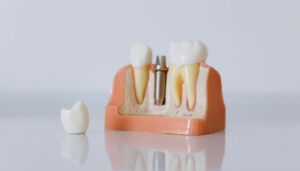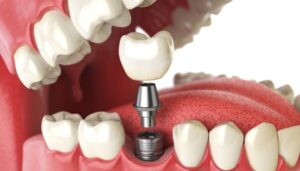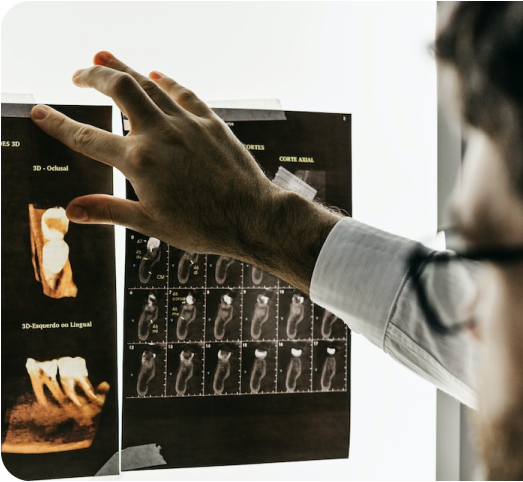
Questions to Ask Before Picking Your Dentist: A Patient’s Checklist
Choosing the right dentist is a critical decision for your oral health and overall well-being. Whether you’re new to Lewisville, seeking specialized care, or simply ready for a change, asking the right questions ensures you find a provider who meets your needs. To make your search easier, we’ve created a patient’s checklist of essential questions—and we’ll explain why Hillcrest Dentist in Lewisville stands out as a top choice for families and individuals alike. 1. What Qualifications and Experience Does the Dentist Have? Start by verifying the dentist’s credentials. Look for a Doctor of Dental Surgery (DDS) or Doctor of Dental Medicine (DMD) degree, along with ongoing training in modern techniques. Experience in general, cosmetic, or pediatric dentistry can also matter depending on your needs. Why Hillcrest Dentist? Hillcrest Dentist’s team boasts highly qualified professionals with decades of combined experience. Their dentists stay updated with the latest advancements through continuing education, ensuring you receive cutting-edge care in a comfortable setting. 2. What Services Do They Offer? A good dental practice should provide comprehensive care, from preventive cleanings to advanced procedures like implants, orthodontics, or cosmetic treatments. This saves you the hassle of visiting multiple specialists. Why Hillcrest Dentist?From routine checkups and teeth whitening to restorative dentistry and emergency care, Hillcrest Dentist offers a full spectrum of services. Their one-stop approach simplifies your dental care, whether you need a filling, a crown, or a smile makeover. 3. Do They Accept Your Insurance or Offer Flexible Payment Options? Affordability is key. Ask about accepted insurance plans, financing options, or membership plans for uninsured patients. Transparency about costs prevents surprises later. Why Hillcrest Dentist?Hillcrest Dentist works with most major insurance providers and offers flexible payment plans. Their team will help you maximize your benefits and even provide guidance on financing options like CareCredit®. 4. How Do They Handle Dental Emergencies? A knocked-out tooth or sudden pain can’t wait. Ensure the practice offers same-day appointments or after-hours care for emergencies. Why Hillcrest Dentist?Hillcrest Dentist prioritizes emergencies, with prompt scheduling and a compassionate team ready to relieve pain and address urgent issues quickly. Their same-day emergency services give Lewisville residents peace of mind. 5. What Technology Do They Use? Modern dental technology improves accuracy, comfort, and outcomes. Look for practices that invest in digital X-rays, intraoral cameras, or laser dentistry. Why Hillcrest Dentist?Hillcrest Dentist utilizes state-of-the-art tools, including digital imaging and painless injection systems, to enhance diagnostics and treatment. Their tech-forward approach ensures faster, safer, and more comfortable visits. 6. What Do Reviews Say About Their Patient Experience? Online reviews and testimonials offer insight into a practice’s bedside manner, wait times, and overall patient satisfaction. Why Hillcrest Dentist?With glowing reviews praising their friendly staff, clean facilities, and stress-free environment, Hillcrest Dentist has built a reputation as one of Lewisville’s most trusted practices. Patients consistently highlight their personalized care and attention to detail. 7. Do They Focus on Patient Comfort and Education? A great dentist educates patients about their oral health and prioritizes comfort through amenities like sedation options or a calming office atmosphere. Why Hillcrest Dentist?Hillcrest Dentist believes in empowering patients through clear communication. They offer sedation dentistry for anxious patients and create a welcoming environment with amenities like warm blankets, Netflix-equipped operatories, and a kid-friendly space for families. Why Hillcrest Dentist in Lewisville is Your Ideal Choice At Hillcrest Dentist, every item on this checklist is met with excellence. Their commitment to quality care, advanced technology, and patient-centered service makes them a standout in the Lewisville community. Whether you’re due for a cleaning, considering Invisalign®, or need urgent care, their team is ready to help you achieve a healthy, confident smile. Ready to Experience the Hillcrest Difference?Schedule your appointment today at Hillcrest Dentist in Lewisville. Visit their website at www.hillcrestlewisville.com or call (972) 833-4700 to book your consultation. New patients receive a complimentary whitening kit with their first cleaning! Your smile deserves the best—trust Hillcrest Dentist to deliver care that’s as exceptional as you are.






